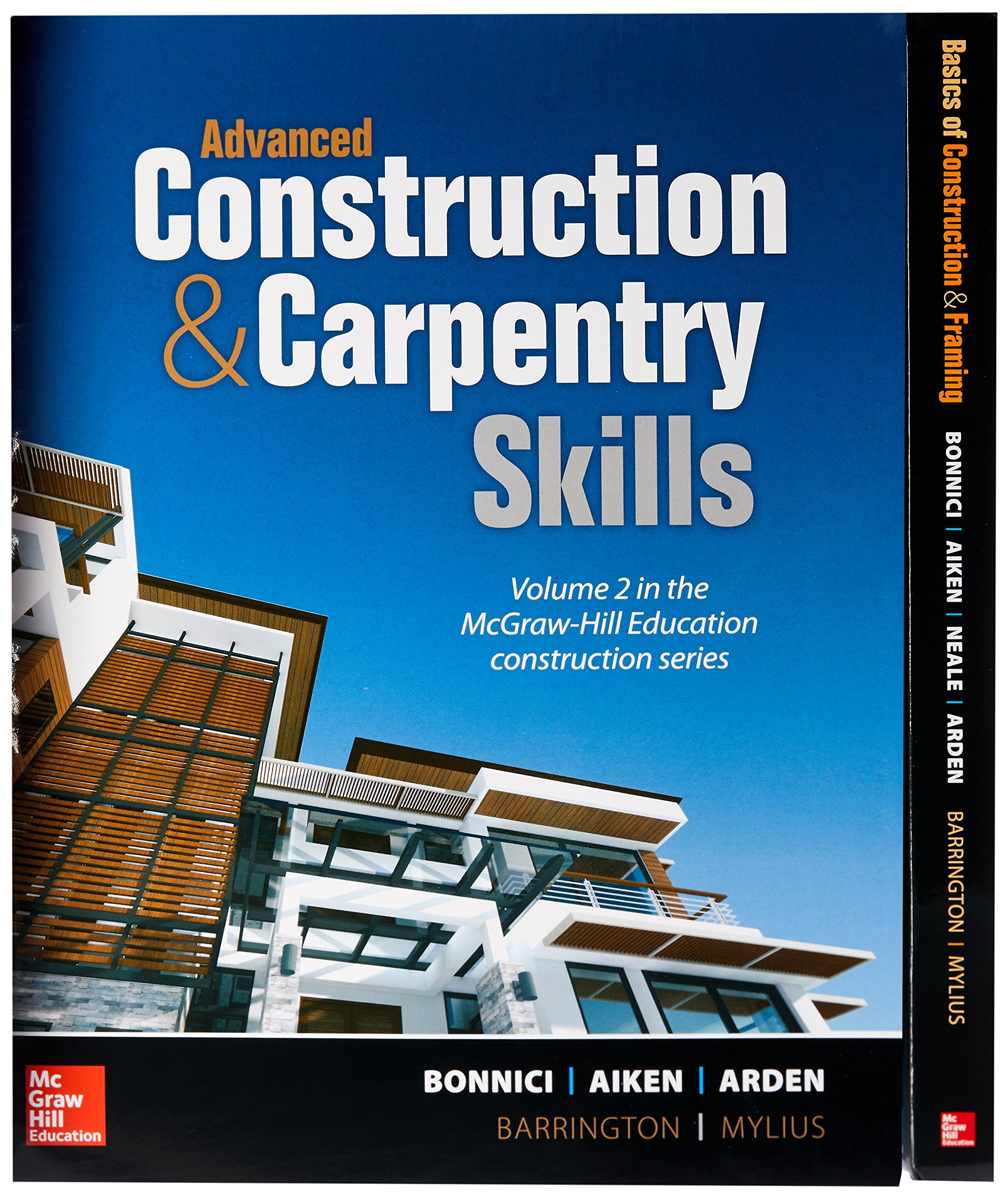Test Bank For Advanced Construction And Carpentry Skills by Bonnici 1
Digital item No Waiting Time Instant DownloadISBN-10: 1743075588 ISBN-13: 978-1743075586
In Stock
Original price was: $55.00.$25.00Current price is: $25.00.
Test Bank For Advanced Construction And Carpentry Skills by Bonnici 1
Chapter 04 Testbank
1. A horizontal line of notches may be cut out around a bath for the purpose of fitting a bath edge support. The maximum depth of these cutouts is:A. 20 mmB. 25 mmC. 30 mmD. 35 mm
2. Before lining the walls you must ensure that you have accounted for:A. any additional framing needed to support fixtures such as vanities, shower screens and handrailsB. the compliance of fixtures to applicable water ratingsC. the quantity of lining material is sufficient to do the jobD. the room size is adequate for the fixtures proposed to go in it
3. The purpose of a capillary break is to:A. allow the frame to move without affecting fixtures such as bath, vanities or shower basesB. allow room for shower bases and baths to expand and contract with changes in temperature from hot waterC. stop water from bridging between fixtures and being drawn into the frameD. provide a space into which a sealant may be pumped to stop leaks but allow movement
4. The installation of a spa bath over a bearer and joist flooring system may require you to:A. use a heavier floor sheeting such as 19 mm thick fiber cement sheetB. change the plumbing layoutC. install additional subfloor framing and support membersD. paint a waterproof sealant under the spa bath area
5. If the shower base you are about to install is twisted such that you can only get two edges level, not all four, then you should:A. use a heavy object (bags of cement, buckets of water) to twist it back into shapeB. use long timbers to wedge it down from the ceiling until the mortar setsC. level the two front edges as this is where the shower screen must goD. level the two back edges so the wall tiles will not end up being cut at an angle
6. Kitchens and exposed balconies are not included in the NCC Vol. 2 BCA’s definition of wet areas.True False
7. When the NCC Vol. 2 BCA specifies that a surface must be water resistant it means it must be coated with a waterproof compound and then surfaced with an abrasive-resistant material such as grouted tiles, plastic laminates or similar.True False
8. In one method of installing a bath, a series of noggings should be installed around the bath above the checkout. The purpose of these noggings is to provide fixing support for the internal linings.True False
9. Waterproofing is a critical but small job on a domestic building site. For that reason it is not expected that you will have access on site to the material safety data sheets (MSDS) for the all the various materials involved.True False
10. An advantage of wet area plasterboard over fibre cement sheet as a lining in bathrooms is that it has significantly better thermal and acoustic properties. In addition, it also handles frame movement better.True False
Chapter 04 Testbank Key
1. A horizontal line of notches may be cut out around a bath for the purpose of fitting a bath edge support. The maximum depth of these cut outs is:A. 20 mmB. 25 mmC. 30 mmD. 35 mm
Competency: CPCCCA3012B Frame and fit wet area fixturesDifficulty: EasyPerformance criteria: CPCCCA3012B 1.1Performance criteria: CPCCCA3012B 3.1
2. Before lining the walls you must ensure that you have accounted for:A. any additional framing needed to support fixtures such as vanities, shower screens and hand railsB. the compliance of fixtures to applicable water ratingsC. the quantity of lining material is sufficient to do the jobD. the room size is adequate for the fixtures proposed to go in it
Competency: CPCCCA3012B Frame and fit wet area fixturesDifficulty: MediumPerformance criteria: CPCCCA3012B 3.3Performance criteria: CPCCCA3012B 4.3
3. The purpose of a capillary break is to:A. allow the frame to move without affecting fixtures such as bath, vanities or shower basesB. allow room for shower bases and baths to expand and contract with changes in temperature from hot waterC. stop water from bridging between fixtures and being drawn into the frameD. provide a space into which a sealant may be pumped to stop leaks but allow movement
Competency: CPCCCA3012B Frame and fit wet area fixturesDifficulty: MediumPerformance criteria: CPCCCA3012B 3.3Performance criteria: CPCCCA3012B 4.3
4. The installation of a spa bath over a bearer and joist flooring system may require you to:A. use a heavier floor sheeting such as 19 mm thick fibre cement sheetB. change the plumbing layoutC. install additional subfloor framing and support membersD. paint a waterproof sealant under the spa bath area
Competency: CPCCCA3012B Frame and fit wet area fixturesDifficulty: EasyPerformance criteria: CPCCCA3012B 1.1
5. If the shower base you are about to install is twisted such that you can only get two edges level, not all four, then you should:A. use a heavy object (bags of cement, buckets of water) to twist it back into shapeB. use long timbers to wedge it down from the ceiling until the mortar setsC. level the two front edges as this is where the shower screen must goD. level the two back edges so the wall tiles will not end up being cut at an angle
Competency: CPCCCA3012B Frame and fit wet area fixturesDifficulty: MediumPerformance criteria: CPCCCA3012B 1.1


Reviews
There are no reviews yet.